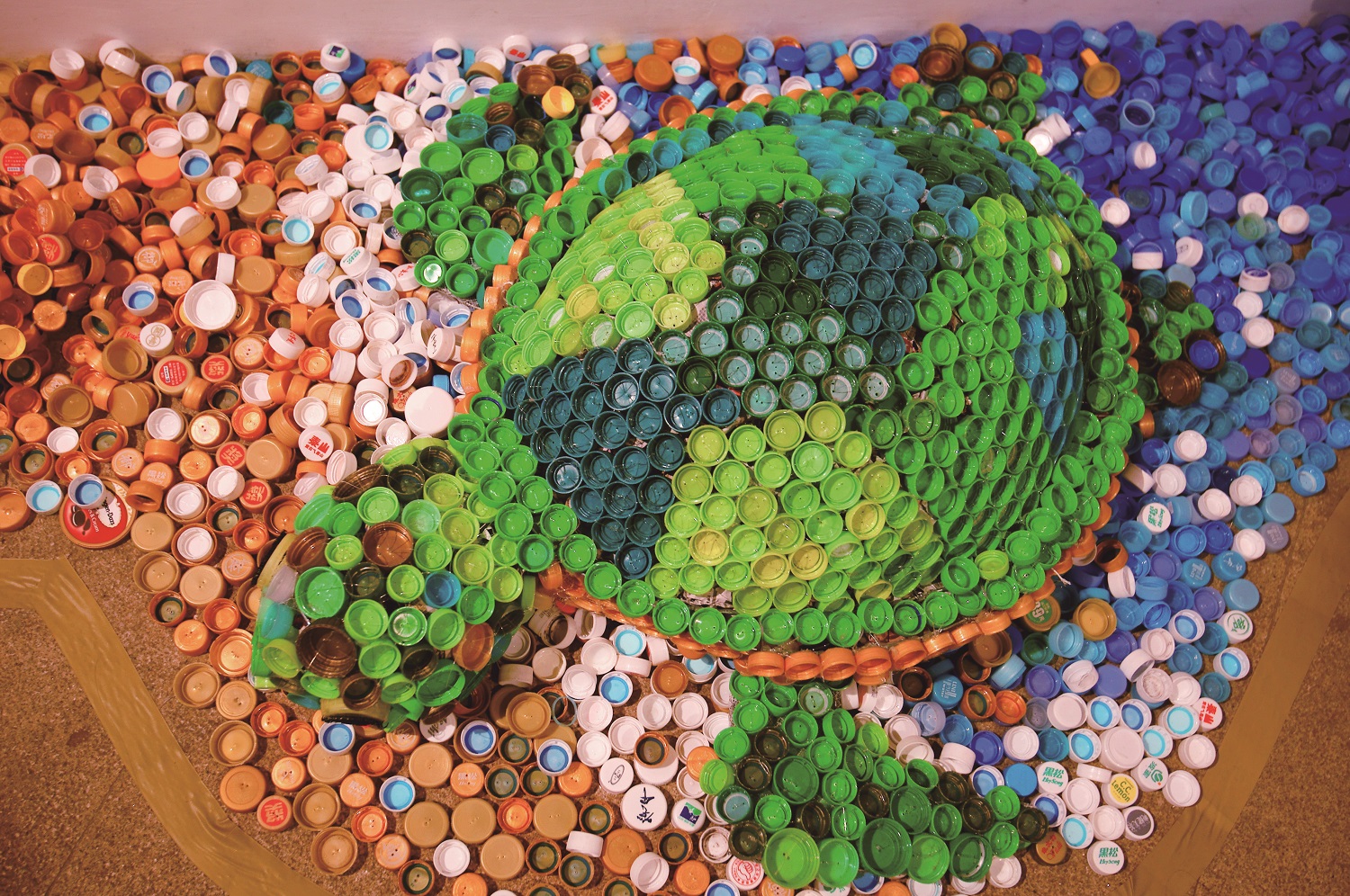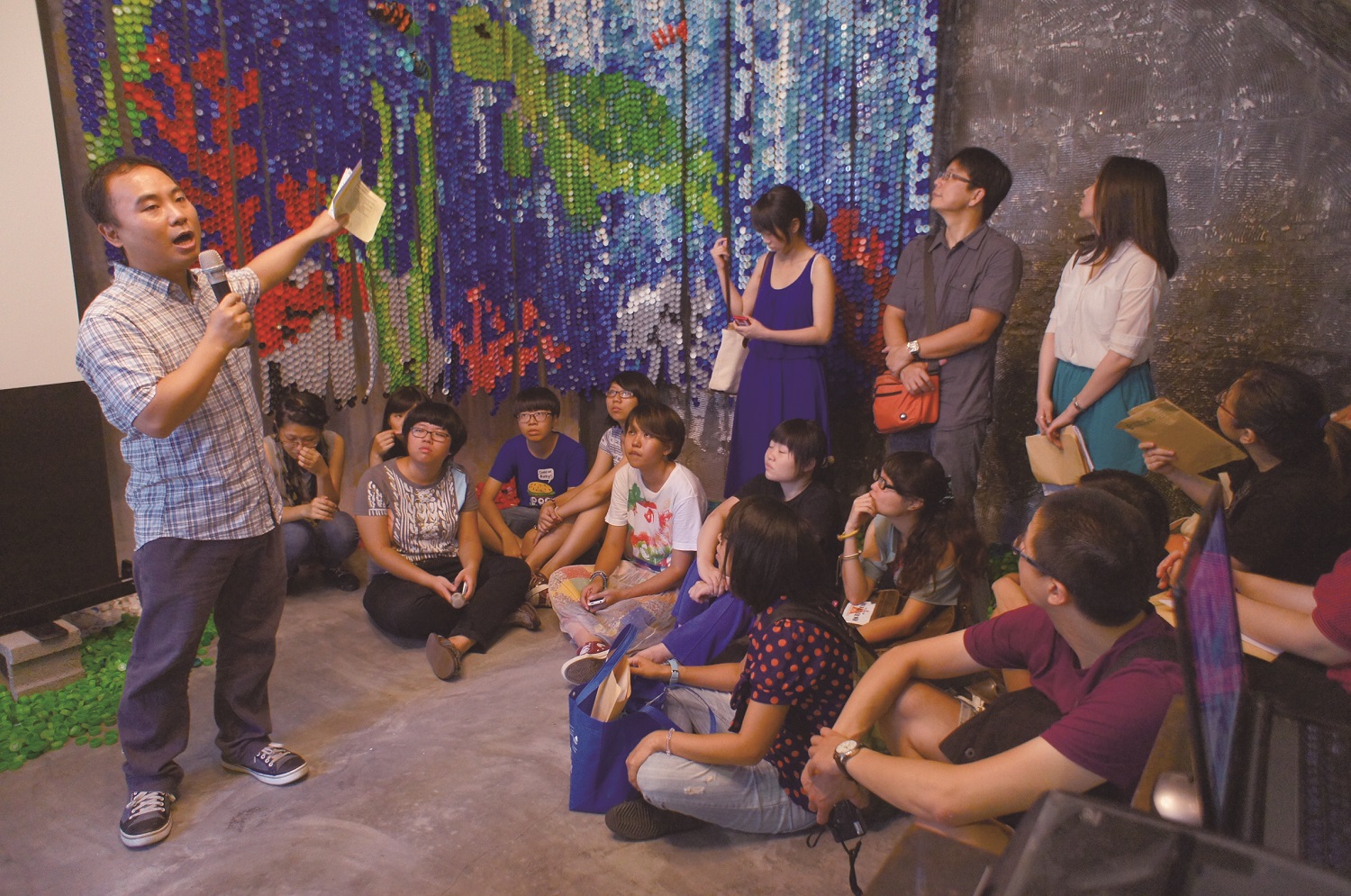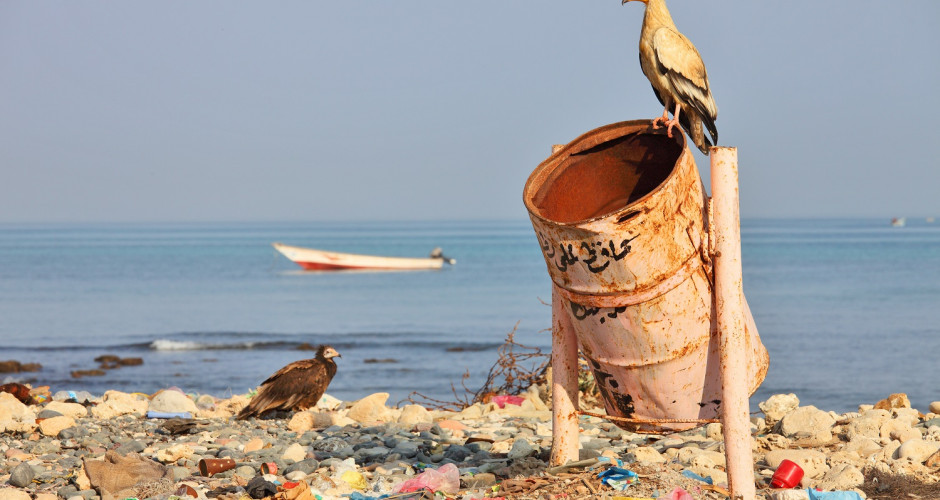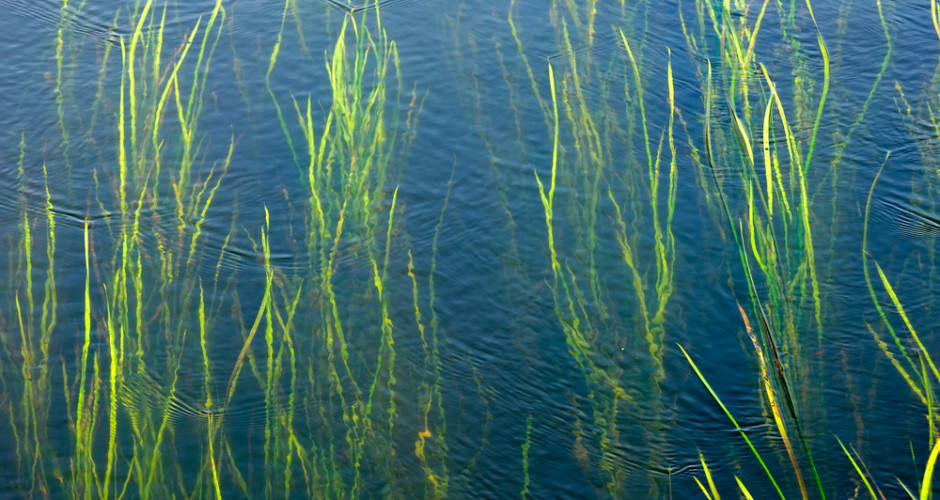Did you know? Bottle caps never cease to pop up every time thereʼs a coastal cleanup event.
Why? It is because of all the waste people generate when using disposable products. This waste is threatening the environment and marine animalsʼ survival. Let us unearth the harsh reality behind an art exhibition.
Can you tell where the bottle caps used to make the marine animals in the pictures came from? The red caps are from carbonated drinks, the green ones are from Japanese tea, and the blue ones are from sports drinks. All these colorful bottled drinks can be found on the shelves in convenient stores, with alluring marketing slogans on them to get consumers to buy them. What these consumers don’t know is that beneath this kind of purchasing behavior is the serious crisis in marine ecology.

Due to today’s public awareness on environmental protection issues, most people know that plastic bottles need to be crushed and recycled, but what they don’t know is that bottle caps should also be recycled. Lack of knowledge and awareness towards bottle caps has resulted in large amounts of bottle caps being casually thrown away and entering the ocean, causing plastic pollution, caps accidently ending up in seabirds’ stomachs, and eventually appearing on our dining tables. According to the 2014 International Coastal Cleanup statistics by The Society of Wilderness, plastic debris topped the list with 25,450 items, followed by paper and plastic bags coming in third with 8,524 items, and plastic bottle caps landed sixth place with 5,330 items.

These numbers give us a peek into the seriousness of plastic pollution in the ocean. Grasping at this opportunity to shed light on the trash crisis, the Taiwan Environmental Information Association held a Bottle Cap Workshop in 2013, inviting young students and environmental volunteers to piece the bottle caps together into mosaic decorations in the shape of 8 endangered marine animals. An activity combining art, education, and entertainment gives children of all ages the chance to learn about these bottle caps they see in everyday life and how disposable consumer behavior negatively affects the environment simply for the sake of convenience.
Reference
Taiwan Environmental Information Center
The Society of Wilderness
Source
Taiwan Environmental Information Center


